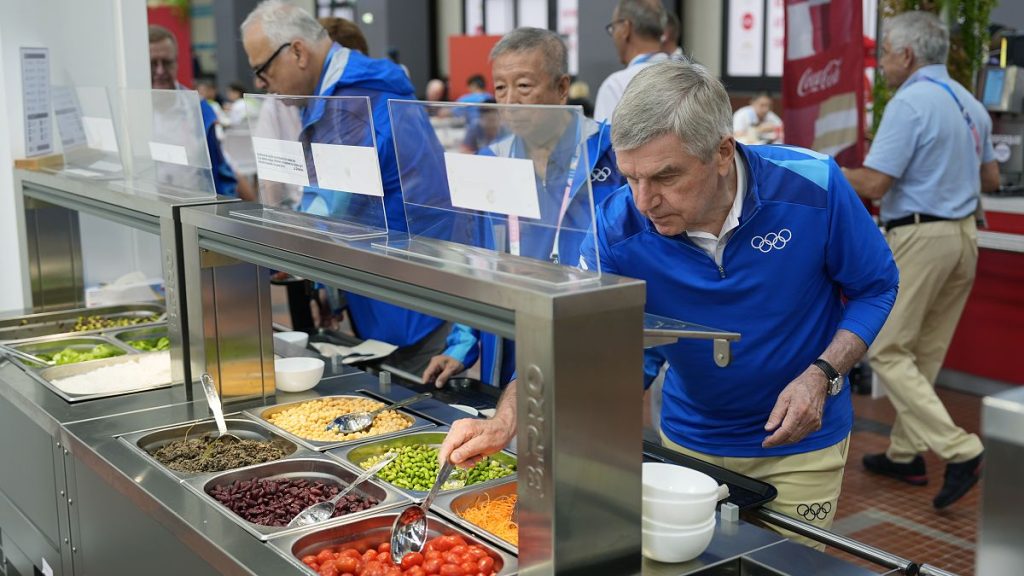The Paris Olympics sparked debate in Brussels after athletes raised concerns about the lack of animal protein-rich diet at the Olympic Village. The German men’s hockey team criticized the food as a disaster, while British athletes had to fly in an additional chef to address the shortfall of supply. CEO of the UK Olympic Association, Andy Anson, lamented the lack of protein, especially chicken and eggs, and raised concerns about meat being served raw. The Paris 2024 Food Vision aimed to reduce the Games’ carbon footprint by serving locally sourced, seasonal food with reduced animal protein compared to previous Olympics. Following the complaints, CEO of Paris 2024 Games, Étienne Thobois, announced adjustments to increase animal proteins in response to athlete demands.
Sodexo Live, the French company responsible for catering at the Olympics, temporarily shifted from its eco-friendly commitments to increase popular items such as eggs and grilled meats in response to the athletes’ needs. In Brussels, the EU’s Farm to Fork strategy promoting plant-based diets was also brought into the discussion as president of the EU farmers’ lobby, Christiane Lambert, criticized the shift away from animal protein. She argued that high-protein foods offered by animal proteins are essential for muscle repair and recovery for athletes, and that the EU underestimates the diverse dietary needs based on age, gender, physical activity, culture, and traditions. On the other hand, the European Vegetarian Union welcomed the emphasis on plant-based options in the Food Vision, citing scientific evidence showing that plant-based diets can support athletic performance and muscle recovery without disadvantages.
The EU farmers’ lobby criticized the shift away from animal protein, emphasizing the importance of high-protein foods for athletes’ muscle repair and recovery. They argued that the EU underestimates the diverse dietary needs based on age, gender, physical activity, climate, traditions, and culture. On the other hand, the European Vegetarian Union welcomed the emphasis on plant-based options in the Food Vision, citing scientific evidence supporting plant-based diets for athletic performance and muscle recovery without disadvantages. They emphasized the importance of proper protein and carbohydrate intake and educating athletes and their teams about plant-based alternatives.
The European Vegetarian Union welcomed the emphasis on plant-based options in the Food Vision, citing scientific evidence showing that plant-based diets can support athletic performance and muscle recovery without disadvantages. They emphasized the importance of ensuring proper protein and carbohydrate intake and educating athletes and their teams about plant-based alternatives. The shift towards plant-based options in the Olympics catering sparked debate in Brussels, particularly in light of the EU’s Farm to Fork strategy promoting plant-based diets. While some criticized the lack of animal protein in the athletes’ diets, others welcomed the focus on plant-based options and local sourcing as a way to showcase a more sustainable approach to Olympic catering. The discussions in Brussels highlighted the ongoing debate around dietary needs and sustainability in sports nutrition, with different stakeholders advocating for different approaches to meet the athletes’ requirements.


